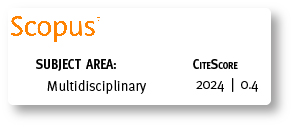Probing the feelings of parents, family and society to people with Down syndrome: Observational study
DOI:
https://doi.org/10.18537/mskn.04.02.04Keywords:
Down syndrome, qualitative observational study, parental response, family reaction, societal stigmaAbstract
The paper presents the results of a qualitative observational study mapping the emotional responses of a focus group of 8 persons with children with Down Syndrome. The respondents also completed a semi-structured questionnaire. The children of the focus group all belong to the DS daycare centre of the city of Cuenca, Ecuador. The group interview and questionnaire addressed respectively the crossculturally stigma and discrimination versus persons with DS, the parent’s feelings, the impact on the whole family, and the communication with the health care sector. The study revealed that in Cuenca city the negative attitude regarding DS persons still persists. Additionally, the survey shed light on the responses and adaption of parents and families. Last but not least it is recognized that improved communication with health care personnel, knowledgeable of the emotional attitude of parents and family functioning, will be beneficial for the acceptance and care-taking of DS persons. Findings leads to the necessity of developing counseling programs for children with DS and their families, and underscores the vital need to increase community awareness and social support.
Downloads
Metrics
References
Arnold, M., 1987. Exposición crítica teóricas de la Antropología cognitiva. Revista Chilena de Antropología, 6, 13-25. Descargado de http://www.revistas.uchile.cl/index.php/RCA/article/ viewFile/17622/18386 el 10 de agosto del 2009.
Asamblea Constituyente, 2008. Constitución 2008. Ministerio de Gobierno, Policía y Cultos. República del Ecuador, 24-25, 33-43.
Bastidas. M, G.M. Alcaraz, 2011. Comunicación de la noticia del nacimiento de un niño o niña con Síndrome de Down: el efecto de una predicción desalentadora. Rev. Fac. Nac. Salud Pública, 29, 17-24.
Belmonte, C., 2007. Emociones y cerebro. Rev. R. Acad. Cienc. Exact. Fis. Nat., 101(1), 59-68. Descargado de http://www.rac.es/ficheros/doc/00472.pdf el 10 de agosto del 2009.
Bull, M.J. y Comité de Genética, 2011. Clinical Report- Health supervision for children with Down Syndrome. Pediatrics, 128(2), 393-407.
Cabra de Luna, M.A, 2004. Discapacidad y aspectos sociales: la igualdad de oportunidades, la no discriminación y la accesibilidad universal como ejes de una nueva política a favor de las personas con discapacidad y sus familias. Algunas consideraciones en materia de protección social. Revista del Ministerio de Trabajo y Asuntos sociales, 50, 21-46. Descargado de http://dialnet.unirioja.es/servlet/articulo?codigo=897754 el 13 de agosto del 2013.
Céspedes, M., 2010. La nueva cultura de la discapacidad y los modelos de rehabilitación (Spanish). Aquichan [serial on the Internet]. (2005, Oct), [cited February 16, 2010]; 5(1), 108-113. Available from: Academic Search Complete. Descargado de http://search.ebscohost.com/login.aspx? direct=true&db=a9h&AN=21501715&lang=es&site=ehost-live el 10 de febrero del 2010.
CONADIS, 2005. Discapacidad en cifras. Capítulo: Actitudes frente a la discapacidad (1 disco compacto). Consejo Nacional de Discapacidades, Instituto Nacional de Estadísticas y Censos del Ecuador.Díaz, J., C. Malpica, 2006. Representaciones sociales de la discapacidad. (Spanish). Investigación en Salud [serial on the Internet]. (2006, Dec), [cited February 16, 2010]; 8(3), 158-164. Available from: Academic Search Complete. Descargado de http://search.ebscohost.com/ login.aspx?direct=true&db=a9h&AN=24572676& lang=es&site=ehost-live el 14 de febrero del 2010.
Díaz, J., C. Malpica, 2006. Representaciones sociales de la discapacidad. (Spanish). Investigación en Salud [serial on the Internet]. (2006, Dec), [cited February 16, 2010]; 8(3), 158-164. Available from: Academic Search Complete. Descargado de http://search.ebscohost.com/login.aspx?direct= true&db=a9h&AN=24572676& lang=es&site=ehost-live el 14 de febrero del 2010.
Dent, K., J.C. Carey, 2006. Breaking difficult news in a newborn setting: Down síndrome as a paradigm. Am. J. Med. Genet. C. Semin. Med. Genet., 142C(3), 173-9.
Foro por la Niñez y Adolescencia, 2009. Análisis del Código de la Niñez y Adolescencia del Ecuador. Descargado de: http://www.revistajuridicaonline.com/index.php?option=com_content&task=view
&id=58&Itemid=27 el 14 de aogsto del 2013.
Hernández, R., 2001. Antropología de la discapacidad. Descargado de: http://www.peritajemedicoforense.com/RHERNADEZ.htm el 13 de agosto del 2013.
Huiracocha, L., G. Robalino, M.S. Huiracocha, J.L. García, C.G. Pazán, A. Angulo, C.A. Almeida, 2012. El desarrollo psicomotor y la calidad de la atención temprana. Maskana, 3(2), 31-44.
King, G., L. Zwaigenbaum, S. King, D. Baxter, P. Rosenbaum, A. Bates, 2006. Cambios en los sistemas de convicciones, valores de las familias de niños con autismo y síndrome de Down. Revista Síndrome de Down, 51-58. Descargado de http://www.downcantabria.com/revistapdf/ 89/51-58.pdf el 27 de noviembre del 2009.
Larrañaga, I., U. Martín, A. Bacigalupe, J.M. Begiristáin, M.J. Valderrama, B. Arregi, 2008. Impacto del cuidado informal en la salud y la calidad de vida de las personas cuidadoras: Análisis de las desigualdades de género. Gaceta Sanitaria, 22 (5), 443-450. Descargado de http://www. sciencedirect.com/science/article/pii/S0213911108724191 el 11 de agosto del 2013.
Morales, M.G.E., R.E.O. López, 2006. El Síndrome de Down y su mundo emocional. Editorial Trilla, México.
Moreno, F.M, M. Rodríguez, M. Duque, L. Ramírez, O. Pardo, 2006. ¿Qué significa la discapacidad? (Spanish). Aquichan [serial on the Internet]. (2006, Oct), [cited February 16, 2010]; 6(1), 78-91. Available from: Academic Search Complete. Descargado de http://search.ebscohost.com/ login.aspx?direct=true&db=a9h&AN=23438098&lang=es&site=ehost-live el 13 de Febrero del 2010.
Nobrega, A, M.V. Oliveira, 2005. Problemas de adaptación psicosocial de madres de niños portadores de síndrome de Down. Cultura de Cuidados, 17, 68-73.
Núñez, A., 2007. Familia y Discapacidad: de la vida cotidiana a la teoría. Primera edición. Editorial LUGAR, Buenos Aires.
Pace, J.E, M. Shin, S.A. Rasmussen, 2010. Understanding attitudes toward people with Down syndrome. Am. J. Med. Genet. A., 152A(9), 2185-92.
Peñafiel, F., A. Hernández, A. Chacón, 2003. Atención temprana. Enseñanza, 21, 245-274.
Peñuela, J.R.J., 2012.Teletones en Chile y Colombia: De la Discapacidad como caridad, y la Caridad como negocio. Observatorio de la Economía Latinoamericana, Grupo Eumed.net (Universidad de Málaga). Descargado de http://scholar.googleusercontent.com/scholar?q=cache:_ E0PDfG9 hfwJ:scholar.google.com/+CARIDAD+Y+DISCAPACIDAD&hl=es&as_sdt=0,5 el 13 de agosto del 2013.
PROAPS (Programa de Reforma de la Atención Primaria de Salud), 2007. Manual de Comunicación para la Salud. Descargado de http://www.anep.edu.uy/documentos/herramientas.pdf en julio del 2013, pág. 15-35.
Quintero, M., 2007. Diccionario Especializado en Familia y Género. Editorial Lumen, México.
Rodríguez, Y., A. Martínez, O. Álvarez, A. Socarrás, D. Marrero, 2009. Estrategia para mejorar la calidad de la atención al niño con discapacidad. MEDISAN, 13(2). Descargado de http://bvs. sld.cu/revistas/san/vol13_2_09/san06209.htm el 26 de Noviembre del 2009.
Rogers, Ch., G. Dolva, 2002. Nuestra hija tiene síndrome de Down. Tercera Edición. Editorial Paidos, Barcelona.
Sánchez, B., 2009. Bienestar espiritual en personas con y sin discapacidad. Aquichán, 9(1), 8-22. Descargado de http://www.scielo.org.co/scielo.php?script=sci_arttext&pid=S1657-59972009 000100002&lng=en&nrm=iso el 10 de agosto del 2013.
Sandoval, C., 2002. Investigación cualitativa. Programa de Especialización en Teoría, Métodos y Técnicas de Investigación Social. ARFO Editores, Bogotá. Descargado de http://epistemologia-doctoradounermb.bligoo.es/media/users/16/812365/files/142090/INVESTIGACION_CUALITATIVA.pdf el 12 de agosto del 2009.
Sauceda, J., M. Maldonado, 2003. La familia: su dinámica y tratamiento. Organización Panamericana de la Salud. Editorial IMSS, Washington DC, EE.UU.
Sheets, K.M., B.J. Baty, J.C. Vásquez, J.C. Carey, W.L. Hobson, 2012. Breaking difficult news in a cross- cultural setting: A qualitative study about Latino mothers of children with Down syndrome. J. Genet. Couns., 21(4), 582-90.
Shelley, M.C., V.D. Veek, V. Kraaij, N. Garnefski, 2009. Down or up? Explaining positive and negative emotions in parents of children with Down's syndrome: Goals, cognitive coping, and resources. J. Intellect. Dev. Disabil., 34(3), 216-229.
Suárez, F., A. Ordoñez, M. Macheta, 2009. Percepción de las madres con hijos afectados por malformaciones congénitas mayores: necesidad de desarrollo de un sistema de atención apropiado. Estudio cualitativo de grupos focales. Descargado de http://www.bioline.org.br/pdf? rc09011 el 12 de agosto del 2013.
Skotko, B.G., R. Canal, 2004. Apoyo postnatal para madres de niños con síndrome de Down. Revista Síndrome de Down, 21, 54-71. Descargado de http://www.downcantabria.com/documentos/ Apoyo_postnatal.pdf el 12 de agosto del 2013.
Skotko, B.G., G.T. Capone, P.S. Kishnan, 2009. Postnatal diagnosis of Down syndrome: synthesis of the evidence on how best to deliver the news. Pediatrics, 124, 751-758.
Skotko, B.G, S.P. Levine, R. Goldstein, 2011. Having a son or daughter with Down syndrome: perspectives from mothers and fathers. Am. J. Med. Genet. A., 155A(10), 2335-47.
Tavares, A., 2004. La subjetividad de la mujer madre Down en el Nordeste Brasileño, una vida severina. Descargado de http://www.cibernetia.com/tesis_es/PSICOLOGIA/PSICOLOGIA_DE_ LA_ANORMALIDAD/DEFICIENCIA_MENTAL/1#sthash.CpyBvYpb.dpuf el 14 de agosto del 2013.
Wuang, Y., C.Y. Su, 2012. Patterns of participation and enjoyment in adolescentes with Down síndrome. Res. Dev. Disabil., 33(3), 641-8.
Downloads
Published
How to Cite
Issue
Section
License
Copyright © Autors. Creative Commons Attribution 4.0 License. for any article submitted from 6 June 2017 onwards. For manuscripts submitted before, the CC BY 3.0 License was used.
![]()
You are free to:
 |
Share — copy and redistribute the material in any medium or format |
 |
Adapt — remix, transform, and build upon the material for any purpose, even commercially. |
Under the following conditions:
 |
Attribution — You must give appropriate credit, provide a link to the licence, and indicate if changes were made. You may do so in any reasonable manner, but not in any way that suggests the licenser endorses you or your use. |
| No additional restrictions — You may not apply legal terms or technological measures that legally restrict others from doing anything the licence permits. |









